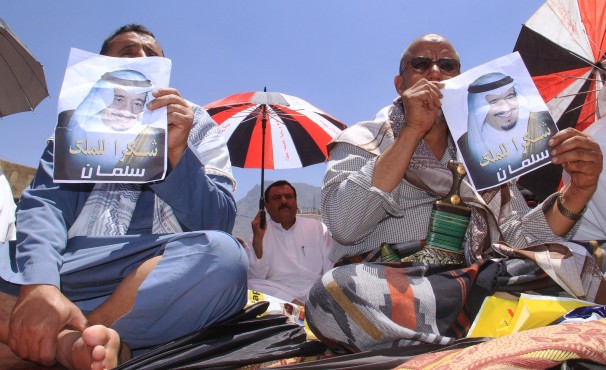By Fareed Zakaria
Yemen’s descent into chaos — with jihadist groups jumping in to fill the vacuum of authority — has startled many observers. Just months ago, the White House was touting the country as a model for its anti-terrorism campaign. But Yemen’s trajectory should not surprise anyone. It follows a familiar pattern in the Arab world, one that we are likely to see again — possibly in larger and more significant countries like Egypt.
Yemen was ruled for 33 years by a secular dictator, Ali Abdullah Saleh. He ruthlessly suppressed opposition groups, especially those with a religious or sectarian orientation (in this case, the Houthis, who are Shiite). After 9/11, he cooperated wholeheartedly with Washington’s war on terrorism, which meant he got money, arms and training from the United States.
But the repression ensured that, over time, dissent would grow. Saleh’s regime faced political and military opposition, and eventually, during the Arab Spring, he was forced to resign. While people both in Yemen and in Washington promised a more representative government, they quickly settled into a comfortable relationship with Saleh’s former deputy, Abed Rabbo Mansour Hadi, who broke promises for political inclusion and participation and quickly began to rule as repressively as his predecessor. As Farea al-Muslimi wrote in a perceptive essay in Foreign Affairs last summer, “The number of elected officials in Yemen was effectively set at zero.”
Soon, the opposition and insurgency mounted. To understand how power politics is often behind religious and sectarian opposition, consider this: Saleh is himself a Shiite but cracked down on the Shiite Houthis forcibly. Now deposed, he and his family have allied with Houthis in a bid to come back into office.
This is the pattern that has produced terrorism in the Arab world. Repressive, secular regimes — backed by the West — become illegitimate. Over time they become more repressive to survive and the opposition becomes more extreme and violent. The space for compromise, pluralism and democracy vanishes. The insurgents and jihadists have mostly local grievances but, because Washington supports the dictator, their goals become increasingly anti-American.
And it is not just the Obama administration. Intellectuals like Ayaan Hirsi Alipraise the general for wanting a moderate version of Islam. Sen. Ted Cruz (R-Tex.) praises Sissi for his courage in calling out Islamists, contrasting him with President Obama. Rep. Louie Gohmert (R-Tex.) compares the general to George Washington for his singular determination.
But it is hardly unusual for an Arab military dictator to want a moderate form of Islam. In fact, that was the norm. Modern Egypt’s first military ruler, Gamal Abdel Nasser, consistently spoke out against the backward and obscurantist religious views of the Muslim Brotherhood as he jailed its members. His successor, Anwar Sadat, intensified this crackdown. And it was in this atmosphere of repression, in Egypt’s jails in the 1970s, that al-Qaeda was born.
There was a U.S. president who understood the danger of blind support for Arab dictators, no matter that they were admirably secular in their outlook or willing to jail jihadists or to stay at peace with Israel. He said, “Sixty years of Western nations excusing and accommodating the lack of freedom in the Middle East did nothing to make us safe.”
His secretary of state was clearer about the connection, explaining that in the Arab world, “there were virtually no legitimate channels for political expression in the region. But this did not mean that there was no political activity. There was — in madrassas and radical mosques. It is no wonder that the best-organized political forces were extremist groups. And it was there, in the shadows, that al-Qaeda found the troubled souls to prey on and exploit as its foot soldiers in its millenarian war against the ‘far enemy.’ ”
That was George W. Bush and Condoleezza Rice. The fact that Bush’s administration so botched its remedy — regime change and occupation of Iraq — should not blind us to the fact that it accurately diagnosed the problem. The Arab world provides no easy answers, trapped as it is between repressive dictators and illiberal democrats. But that does not mean that blindly supporting the autocrats is the right answer.
As we ally ever more closely with Yemen’s and Egypt’s dictators and engage in joint military actions with the absolute monarchy of Saudi Arabia, we should be wondering what is going on in the shadows, mosques and jails of these countries.






